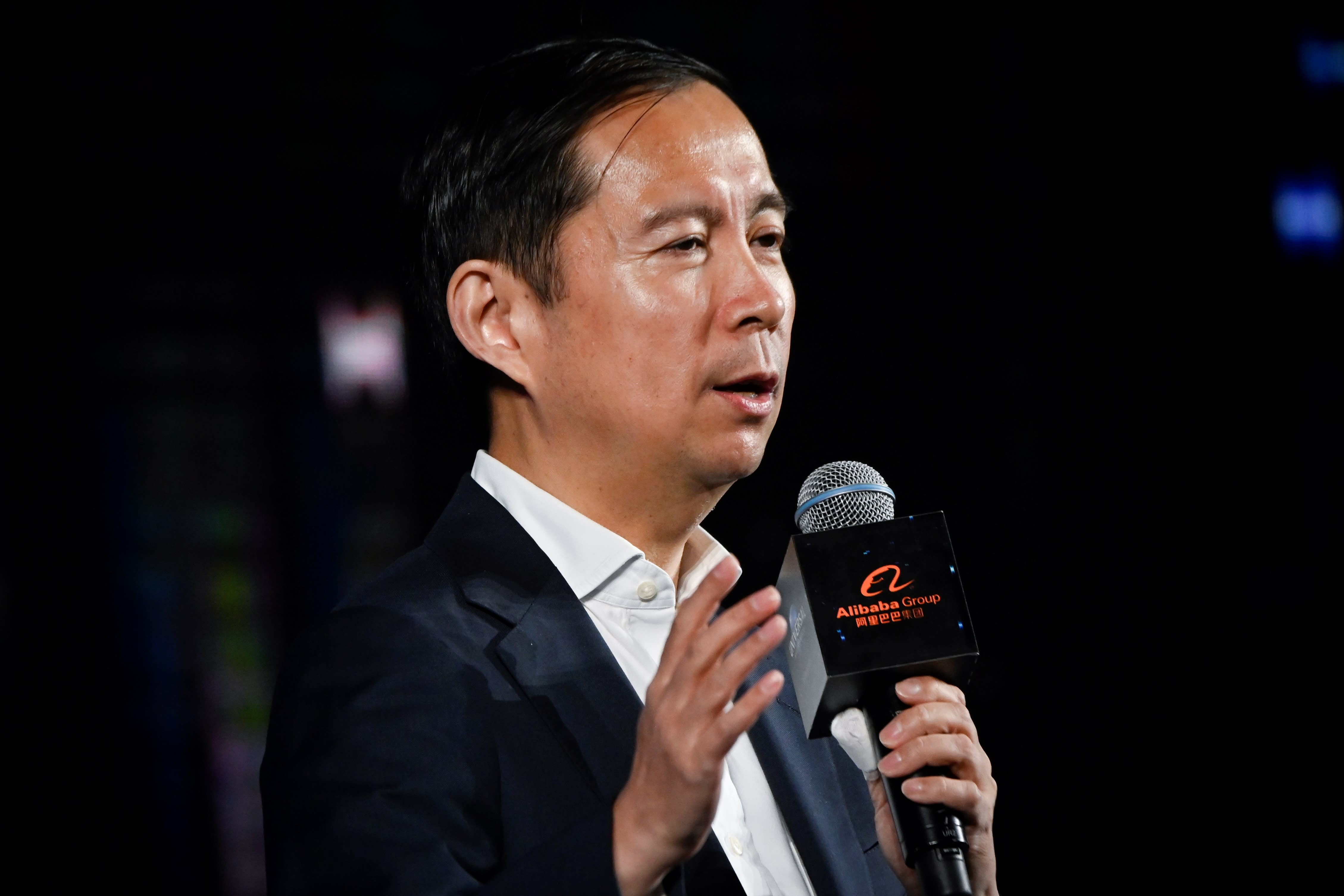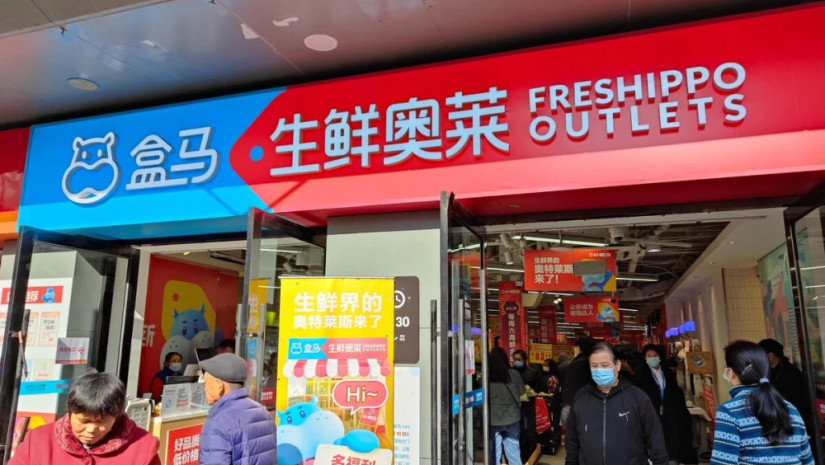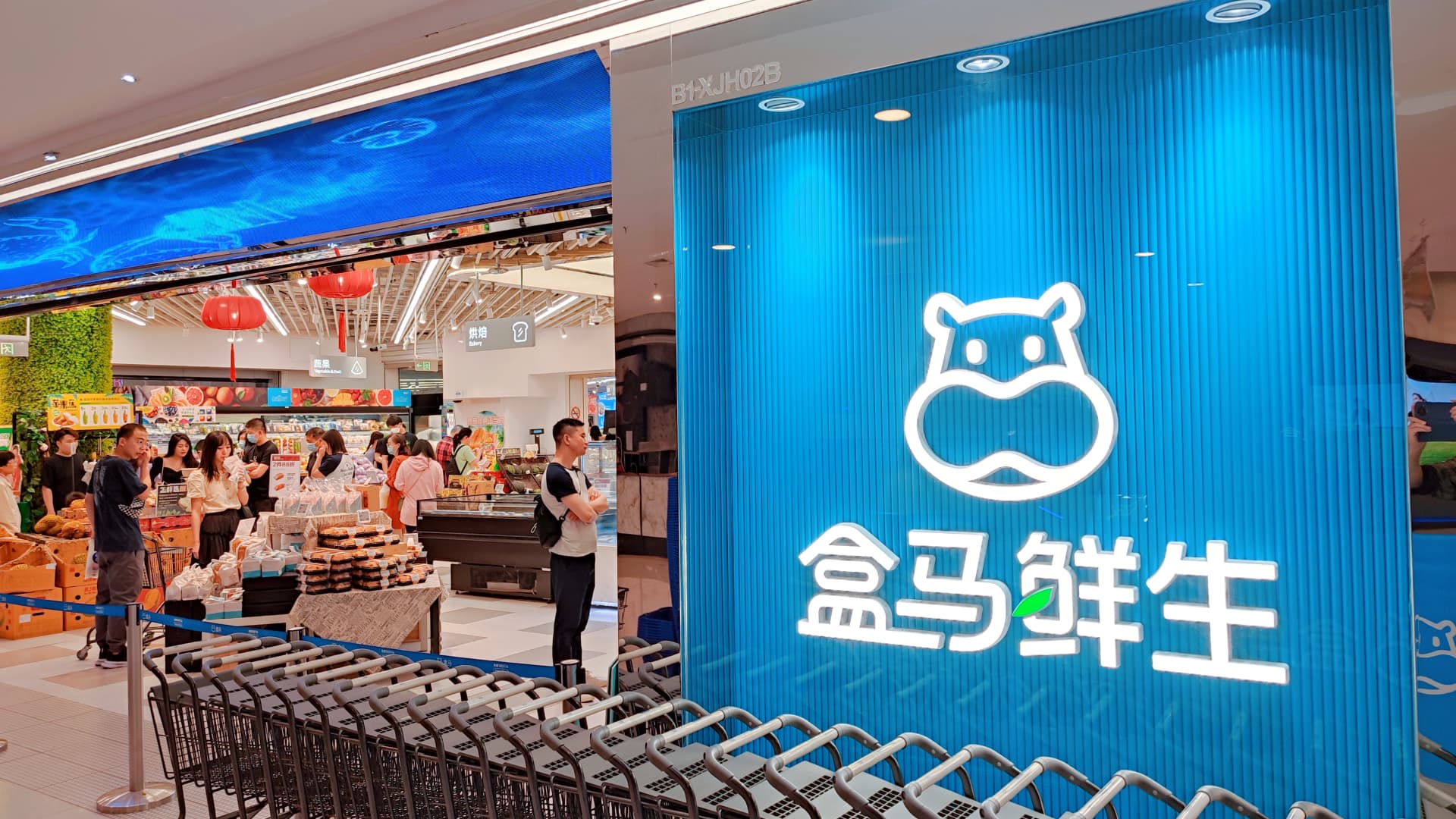Alibaba’s Leadership Shake-Up; CEO Daniel Zhang’s Departure from Cloud Business Sparks Market Reaction; Shares Fall 4%
With the unexpected exit of former CEO Daniel Zhang from the tech giant's cloud computing business, the Hong Kong-listed shares of Alibaba Group took a significant hit, falling by more than 4%. Following Zhang's departure sent ripples through the market, raising questions about the future of Alibaba's cloud division, which holds a substantial share of China's cloud market.

Monday, the Hong Kong-listed shares of China’s Alibaba Group experienced a more than 4% drop after the surprising exit of former CEO Daniel Zhang from the technology giant’s cloud computing division.
Alibaba revealed Zhang’s decision to depart from the unit through internal communication to its staff, and Co-founder Eddie Wu has taken on the role of acting CEO and chairman for the unit; Zhang formally handed over his position as group CEO to Wu as scheduled on Sunday.
The cloud unit is China’s largest cloud service provider, commanding a 34% market share according to research consultancy Canalys as of June. It also hosts DAMO Academy, Alibaba’s research arm for chips and artificial intelligence, and is set to be separated from Alibaba as part of the group’s restructuring by May next year.

Previously, Zhang had been simultaneously leading both the group and the cloud intelligence unit, but in June, Alibaba announced his decision to relinquish his group responsibilities and focus exclusively on the cloud business.
Li Chengdong, head of the Beijing-based Haitun think tank, specializing in e-commerce, noted that Zhang’s departure seemed to be a personal choice and comes at a time when Alibaba Cloud faces heightened competition from state-owned telecom companies, Huawei Technologies (HWT.UL), and a more stringent regulatory environment.
Li said, “Alibaba Cloud has lost some ground with government and state-owned enterprise clients, which were previously a stronghold for the company. During his leadership tenure, Alibaba Cloud’s business did not improve significantly despite his efforts. Zhang likely realized that the challenges facing Alibaba Cloud’s lackluster growth were beyond what he could influence or control as an individual executive.”
Li doesn’t foresee Zhang’s departure having a substantial impact on Alibaba Cloud’s listing plans, as they would primarily hinge on the unit’s business performance. At the same time, Alibaba confirmed its commitment to proceed with the spin-off plan under a newly appointed management team.
Vey-Sern Ling, managing director at Union Bancaire Privee, views this development positively, believing it will provide Alibaba and its cloud business a fresh start. Ling also noted that macroeconomic and geopolitical concerns regarding China were impacting the share price.
In its communication, Alibaba mentioned that Zhang would continue contributing to the company by utilizing his expertise differently. Furthermore, Alibaba plans to invest $1 billion into a technology fund established by Zhang, marking a significant milestone as the company bestowed upon Zhang an “emeritus” title for the first time in its history.
Analysts have estimated the cloud unit’s value to range between $41 billion and $60 billion. However, concerns over the vast amount of data it manages have raised domestic and international regulatory challenges.

Alibaba’s Freshippo IPO Delayed as Valuations Fall Short of Expectations
Meanwhile, China’s Alibaba Group Holding Ltd has decided to postpone the potential initial public offering (IPO) of its Freshippo grocery chain in Hong Kong due to disappointing valuations and subdued investor sentiment in the consumer stocks sector.
The tech conglomerate from China has reevaluated its position and now anticipates achieving a market valuation of approximately $4 billion for Freshippo. This figure falls below the previously targeted range of $6 billion to $10 billion that was considered during discussions of a private funding round last year, as reported.
In May, Alibaba had disclosed its intention to complete Freshippo’s IPO within a timeframe of six to twelve months, alongside considerations for listing its logistics unit, Cainiao.
The capital management committee at Alibaba, responsible for overseeing the company’s restructuring, has recently opted to defer the Freshippo IPO, awaiting a more favorable market climate. The committee has decided to prioritize listings for other business units, according to the report.

This decision to delay the IPO comes within the context of a significant corporate restructuring initiative announced by Alibaba in March; under this restructuring, the company is dividing itself into six separate units, exploring fundraising and public listings for most of these units. This restructuring coincided with a period when China was easing its regulatory scrutiny of local technology companies.
Last year, Reuters had reported that Freshippo was in the process of seeking funds with an estimated valuation of approximately $6 billion. This valuation, however, was notably lower than the initial hopes for a valuation of up to $10 billion.
Freshippo, operating as a supermarket chain in China, provides additional services such as dine-in options and 30-minute home delivery, it was launched in 2016, and the chain had expanded to 273 stores as of March 2022, as indicated on its official website.
The Last Bit, Alibaba’s leadership shake-up, marked by Daniel Zhang’s sudden departure from the cloud business, has generated considerable attention and speculation in the market.
As China’s largest cloud provider, Alibaba Cloud faces increasing competition, regulatory challenges, and a shifting environment, and Zhang’s exit, though surprising, could pave the way for fresh strategies and a renewed focus on the cloud division’s growth.
While Alibaba’s shares have experienced a dip, it’s crucial to remember that the company remains a major player in the tech industry.
The market will be closely watching how the newly appointed leadership, including Eddie Wu, navigates these challenges and whether Alibaba can maintain its position in the highly competitive cloud sector.
Zhang’s continued involvement with the company through a technology fund and the “emeritus” title adds an intriguing layer to this story.
As Alibaba presses forward with its cloud spin-off plans and adapts to evolving market dynamics, the coming months will provide valuable insights into the company’s resilience and ability to innovate in a rapidly changing tech sector.




